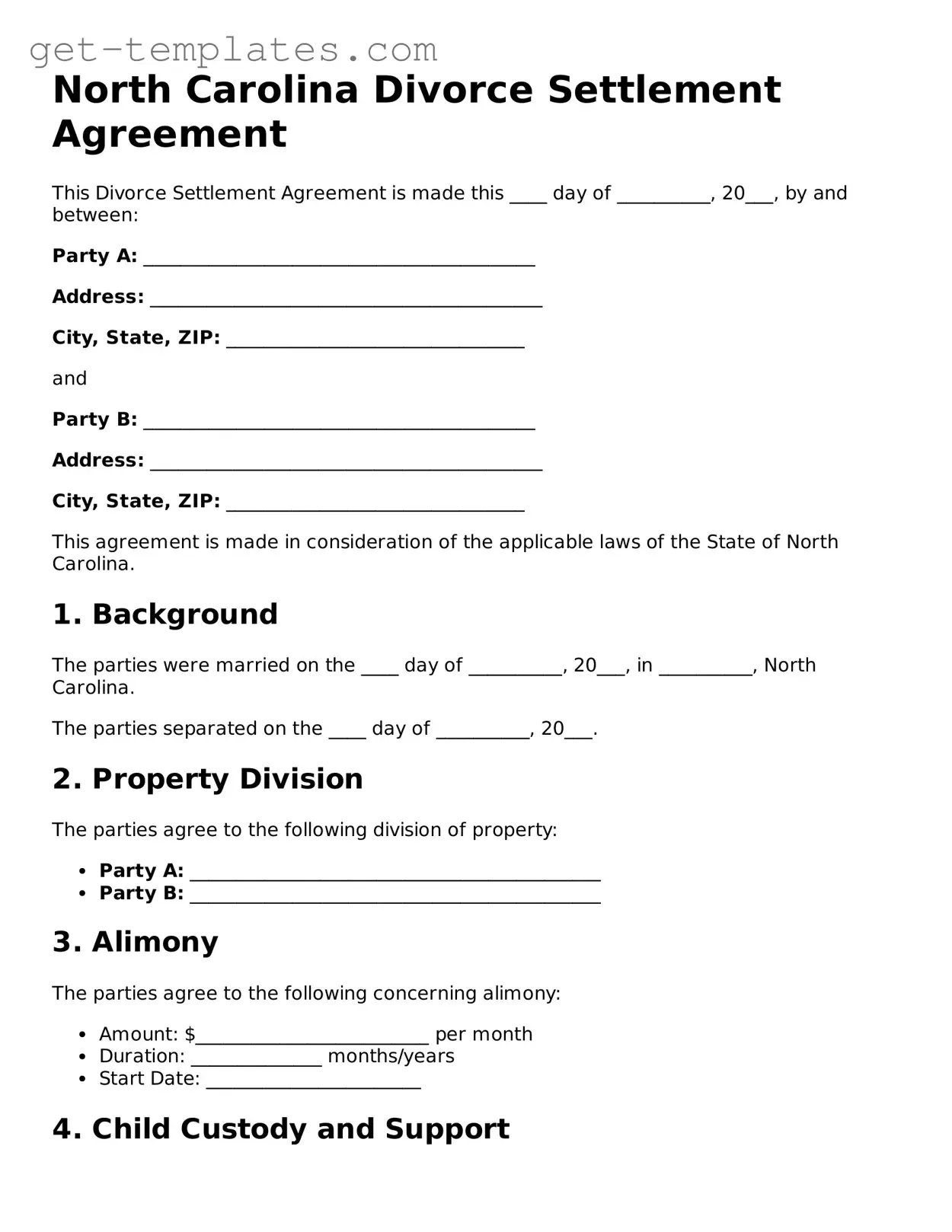Attorney-Approved Divorce Settlement Agreement Document for North Carolina
The North Carolina Divorce Settlement Agreement form is a legal document that outlines the terms of a divorce settlement between spouses. This form addresses various aspects such as property division, child custody, and support obligations. Completing this agreement is essential for ensuring that both parties have a clear understanding of their rights and responsibilities post-divorce.
Get Document Online

Attorney-Approved Divorce Settlement Agreement Document for North Carolina
Get Document Online
You’re halfway through — finish the form
Finish Divorce Settlement Agreement online — edit, save, download made easy.
Get Document Online
or
⇓ PDF Form
